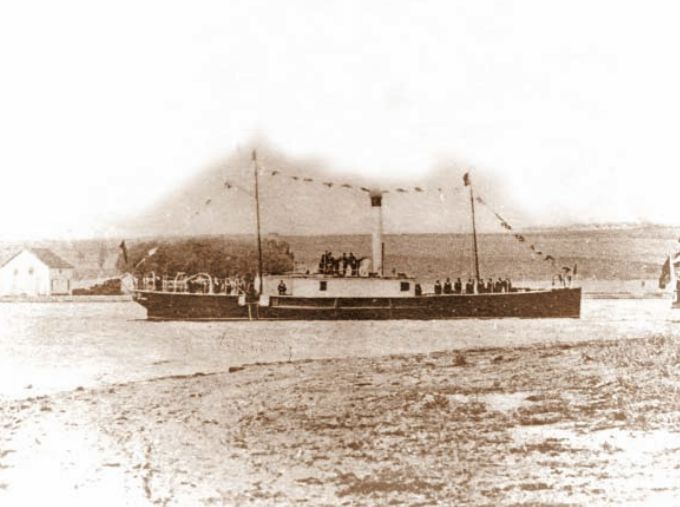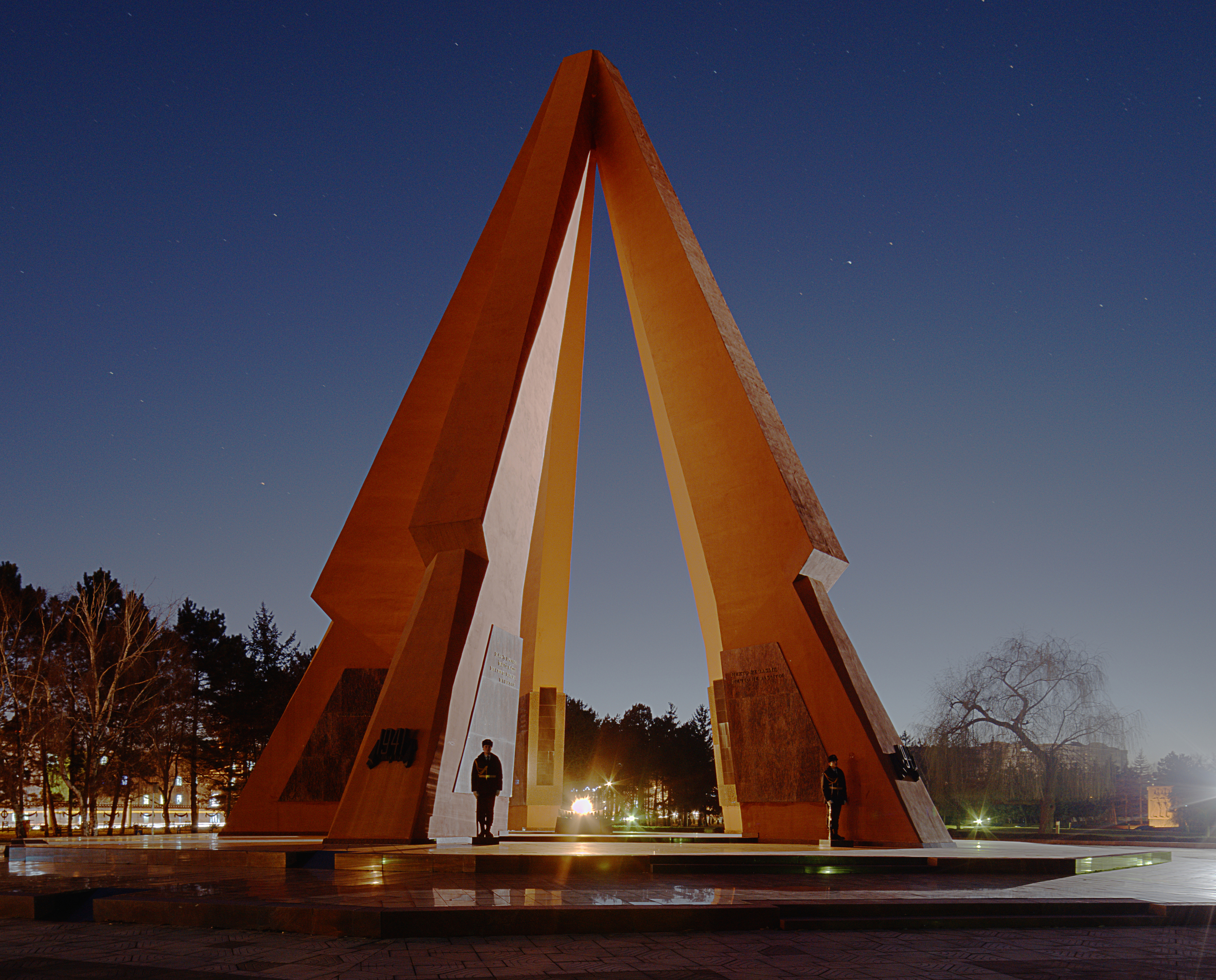|
Nicolae Haralambie
Nicolae Haralambie (August 27, 1835 in Chișinău – April 3, 1908 in Bucharest) was a Romanian soldier and politician. In 1861, he headed the Bucharest police. As a colonel, he took part in the dethronement of Prince Alexandru Ioan Cuza in 1866, subsequently serving in a regency alongside Lascăr Catargiu and Nicolae Golescu. He served as War Minister from August 6, 1866, to February 7, 1867. On July 7, 1874, together with Ion Ghica and a third person, Haralambie performed a flight over Bucharest in a hydrogen balloon named "Mihai Bravul". He returned to the Romanian Army in 1877, taking part in the War of Independence as a brigadier general, and fighting with distinction at the battles of Smârdan and Vidin Vidin (, ) is a port city on the southern bank of the Danube in north-western Bulgaria. It is close to the borders with Romania and Serbia, and is also the administrative centre of Vidin Province, as well as of the Metropolitan of Vidin (since .... Elected sen ... [...More Info...] [...Related Items...] OR: [Wikipedia] [Google] [Baidu] |
Romanian Land Forces Generals
Romanian may refer to: *anything of, from, or related to the country and nation of Romania **Romanians, an ethnic group **Romanian language, a Romance language ***Romanian dialects, variants of the Romanian language **Romanian cuisine, traditional foods ** Romanian folklore *'' The Romanian: Story of an Obsession'', a 2004 novel by Bruce Benderson *''Românul ''Românul'' (, meaning "The Romanian"; originally spelled ''Romanulu'' or ''Românulŭ'', also known as ''Romînul'', ''Concordia'', ''Libertatea'' and ''Consciinti'a Nationala''), was a political and literary newspaper published in Bucharest, Ro ...'' (), a newspaper published in Bucharest, Romania, 1857–1905 See also * * {{disambiguation Language and nationality disambiguation pages ... [...More Info...] [...Related Items...] OR: [Wikipedia] [Google] [Baidu] |
Ministers Of Defence Of Romania ''
{{disambiguation ...
Minister may refer to: * Minister (Christianity), a Christian cleric ** Minister (Catholic Church) * Minister (government), a member of government who heads a ministry (government department) ** Minister without portfolio, a member of government with the rank of a normal minister but who doesn't head a ministry ** Shadow minister, a member of a Shadow Cabinet of the opposition ** Minister (Austria) * Minister (diplomacy), the rank of diplomat directly below ambassador * Ministerialis, a member of a noble class in the Holy Roman Empire * ''The Minister'', a 2011 French-Belgian film directed by Pierre Schöller See also *Ministry (other) *Minster (other) *''Yes Minister ''Yes Minister'' is a British political satire sitcom written by Antony Jay and Jonathan Lynn. Comprising three seven-episode series, it was first transmitted on BBC2 from 1980 to 1984. A sequel, ''Yes, Prime Minister'', ran for 16 episodes f ... [...More Info...] [...Related Items...] OR: [Wikipedia] [Google] [Baidu] |
People From Chișinău
The term "the people" refers to the public or common mass of people of a polity. As such it is a concept of human rights law, international law as well as constitutional law, particularly used for claims of popular sovereignty. In contrast, a people is any plurality of persons considered as a whole. Used in politics and law, the term "a people" refers to the collective or community of an ethnic group or nation. Concepts Legal Chapter One, Article One of the Charter of the United Nations states that "peoples" have the right to self-determination. Though the mere status as peoples and the right to self-determination, as for example in the case of Indigenous peoples (''peoples'', as in all groups of indigenous people, not merely all indigenous persons as in ''indigenous people''), does not automatically provide for independent sovereignty and therefore secession. Indeed, judge Ivor Jennings identified the inherent problems in the right of "peoples" to self-determination, as i ... [...More Info...] [...Related Items...] OR: [Wikipedia] [Google] [Baidu] |
Emigrants From The Russian Empire
Emigration is the act of leaving a resident country or place of residence with the intent to settle elsewhere (to permanently leave a country). Conversely, immigration describes the movement of people into one country from another (to permanently move to a country). A migrant ''emigrates'' from their old country, and ''immigrates'' to their new country. Thus, both emigration and immigration describe migration, but from different countries' perspectives. Demographers examine push and pull factors for people to be pushed out of one place and attracted to another. There can be a desire to escape negative circumstances such as shortages of land or jobs, or unfair treatment. People can be pulled to the opportunities available elsewhere. Fleeing from oppressive conditions, being a refugee and seeking asylum to get refugee status in a foreign country, may lead to permanent emigration. Forced displacement refers to groups that are forced to abandon their native country, such as by e ... [...More Info...] [...Related Items...] OR: [Wikipedia] [Google] [Baidu] |
1908 Deaths
This is the longest year in either the Julian or Gregorian calendars, having a duration of 31622401.38 seconds of Terrestrial Time (or ephemeris time), measured according to the definition of mean solar time. Events January * January 1 – The British Nimrod Expedition, ''Nimrod'' Expedition led by Ernest Shackleton sets sail from New Zealand on the ''Nimrod (1867 ship), Nimrod'' for Antarctica. * January 3 – A Solar eclipse of January 3, 1908, total solar eclipse is visible in the Pacific Ocean and is the 46th solar eclipse of Solar Saros 130. * January 13 – A fire breaks out at the Rhoads Opera House fire, Rhoads Opera House in Boyertown, Pennsylvania, killing 171 people. * January 15 – Alpha Kappa Alpha, the first race inclusive sorority is founded on the campus of Howard University in Washington, D.C. * January 24 – Robert Baden-Powell's ''Scouting for Boys'' begins publication in London. The book eventually sells over 100 million copies, and effectively be ... [...More Info...] [...Related Items...] OR: [Wikipedia] [Google] [Baidu] |
1835 Births
Events January–March * January 7 – anchors off the Chonos Archipelago on her second voyage, with Charles Darwin on board as naturalist. * January 8 – The United States public debt contracts to zero, for the only time in history. * January 24 – Malê Revolt: African slaves of Yoruba Muslim origin revolt against Brazilian owners at Salvador, Bahia. * January 26 ** Queen Maria II of Portugal marries Auguste de Beauharnais, 2nd Duke of Leuchtenberg, in Lisbon; he dies only two months later. ** Saint Paul's in Macau is largely destroyed by fire after a typhoon hits. * January 30 – The first assassination attempt against a President of the United States is carried out against U.S. President Andrew Jackson at the United States Capitol * February 1 – Slavery is abolished in Mauritius. * February 20 – 1835 Concepción earthquake: Concepción, Chile, is destroyed by an earthquake. The resulting tsunami destroys the neighboring city of Talcahuano. * March 2 – ... [...More Info...] [...Related Items...] OR: [Wikipedia] [Google] [Baidu] |
Ion Brătianu
An ion () is an atom or molecule with a net electrical charge. The charge of an electron is considered to be negative by convention and this charge is equal and opposite to the charge of a proton, which is considered to be positive by convention. The net charge of an ion is not zero because its total number of electrons is unequal to its total number of protons. A cation is a positively charged ion with fewer electrons than protons (e.g. K+ (potassium ion)) while an anion is a negatively charged ion with more electrons than protons (e.g. Cl− (chloride ion) and OH− (hydroxide ion)). Opposite electric charges are pulled towards one another by electrostatic force, so cations and anions attract each other and readily form ionic compounds. Ions consisting of only a single atom are termed ''monatomic ions'', ''atomic ions'' or ''simple ions'', while ions consisting of two or more atoms are termed polyatomic ions or ''molecular ions''. If only a + or − is present, it indicate ... [...More Info...] [...Related Items...] OR: [Wikipedia] [Google] [Baidu] |
Vidin
Vidin (, ) is a port city on the southern bank of the Danube in north-western Bulgaria. It is close to the borders with Romania and Serbia, and is also the administrative centre of Vidin Province, as well as of the Metropolitan of Vidin (since 870). An industrial, agricultural, and trade centre, Vidin has a fertile hinterland renowned for its wines. Name The name is archaically spelled as ''Widdin'' in English. Its older form ''Dunonia'' meant "fortified hill" in Celtic with the ''dun'' element found frequently in Celtic place names. It is known as ''Diiu'' in Romanian. Geography Vidin is the westernmost important Bulgarian Danube port and is situated on one of the southernmost sections of the river. The New Europe Bridge, completed in 2013, connects Vidin to the Romanian town of Calafat on the opposite bank of the Danube. Previously, a ferry located from the town was in use for that purpose. History Vidin emerged at the place of an old Celtic settlement known as ''D ... [...More Info...] [...Related Items...] OR: [Wikipedia] [Google] [Baidu] |
Romanian War Of Independence
The Romanian War of Independence () is the name used in Romanian historiography to refer to the phase of the Russo-Turkish War (1877–78), in which Romania, fighting on the Russian side of the war, gained independence from the Ottoman Empire. On , Romania and the Russian Empire signed a treaty at Bucharest under which Russian troops were allowed to pass through Romanian territory, with the condition that Russia respected the integrity of Romania. Consequently, the mobilization of the Romanian troops also began, and around 114,000 soldiers were massed in the south of the country to defend against an eventual attack of the Ottoman forces from south of the Danube. On , Russia declared war on the Ottoman Empire and its troops entered Romania through the newly built Eiffel Bridge, on their way to the Ottoman Empire. Due to great losses, the Russian Empire asked Romania to intervene. On , the first Romanian Army units crossed the Danube and joined forces with the Russian Army. Roman ... [...More Info...] [...Related Items...] OR: [Wikipedia] [Google] [Baidu] |
Chișinău
Chișinău ( , , ; formerly known as Kishinev) is the Capital city, capital and List of cities and towns in Moldova, largest city of Moldova. The city is Moldova's main industrial and commercial centre, and is located in the middle of the country, on the river Bîc, a tributary of the Dniester. According to the results of the 2014 Moldovan census, 2014 census, the city proper had a population of 532,513, while the population of the Municipality of Chișinău (which includes the city itself and other nearby communities) was 700,000. Chișinău is the most economically prosperous locality in Moldova and its largest transportation hub. Nearly a third of Moldova's population lives in the metro area. Moldova has a Moldovan wine, history of winemaking dating back to at least 3,000 BCE. As the capital city, Chișinău hosts the yearly national wine festival every October. Though the city's buildings were badly damaged during the World War II, Second World War and earthquakes, a rich a ... [...More Info...] [...Related Items...] OR: [Wikipedia] [Google] [Baidu] |





